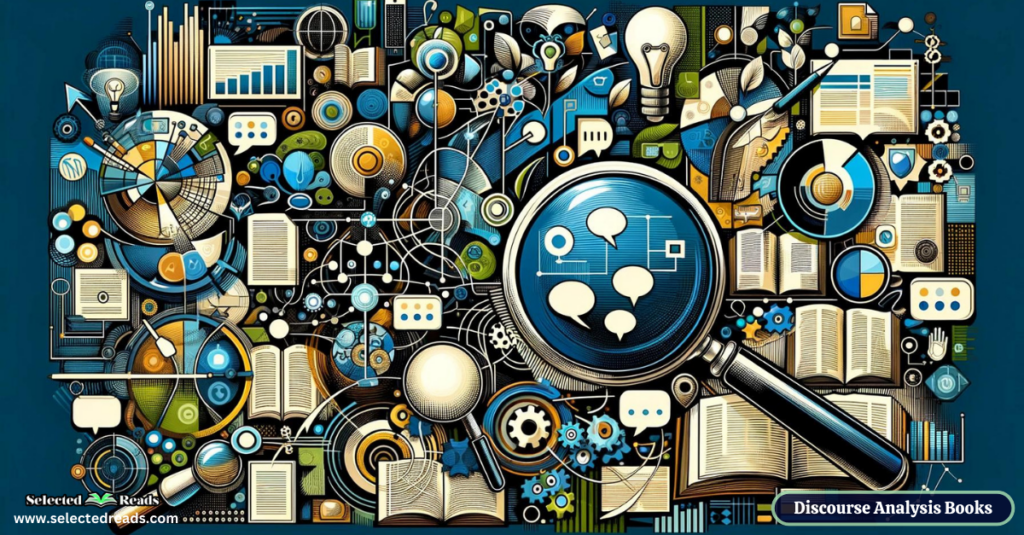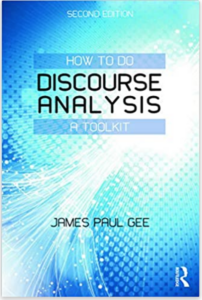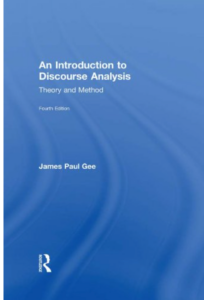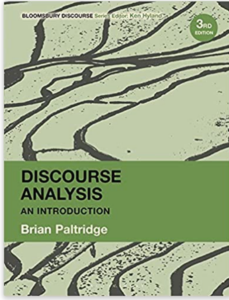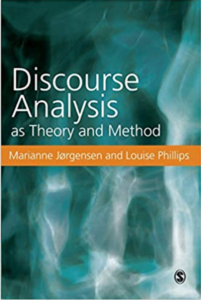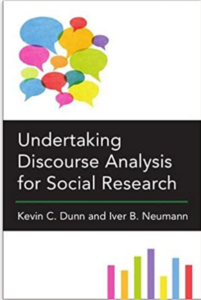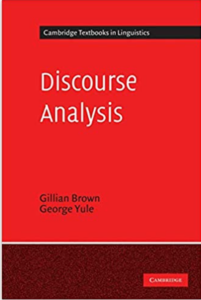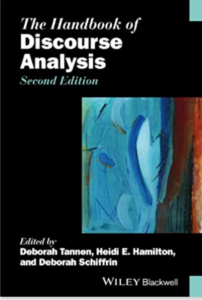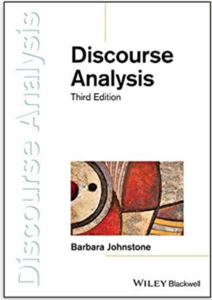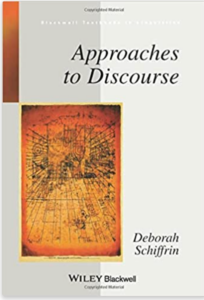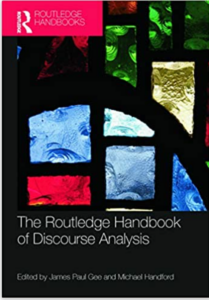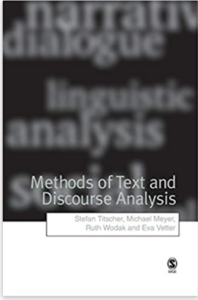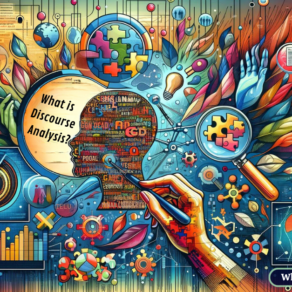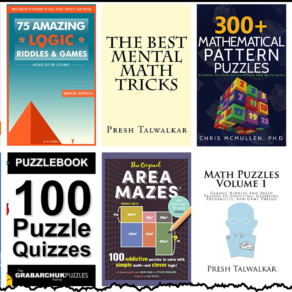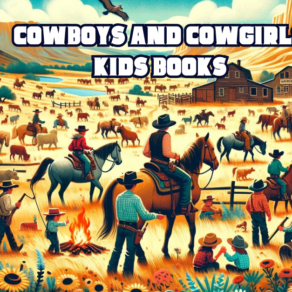In the study of language and its profound implications, discourse analysis emerges as a robust analytical framework, a lighthouse illuminating the deep seas of language study. If you’ve found your way here, I imagine your interest is more than passing; perhaps you’re eager to uncover more about this approach or are considering applying it to your own research endeavors. If that’s the case, you’re in the right place.
I have used critical discourse analysis (CDA), a specific approach within discourse analysis, in the course of my doctoral dissertation and in various published academic papers. By scrutinizing how meaning is created and how language is steeped in power dynamics, CDA has proven to be an insightful and invaluable tool in my research arsenal.
Of course, the field of discourse analysis is rich and diverse, spanning other techniques such as conversational analysis, pragmatic analysis, sociolinguistic analysis, speech act theory, and interactional sociolinguistics, to name but a few.
Whatever your chosen approach, a key component of discourse analysis, unsurprisingly, involves engaging with language or discourse. The degree to which linguistic analysis forms a crucial part of your research is largely contingent on your study’s objectives.
For instance, those following in the footsteps of Norman Fairclough, a proponent of text analysis, will find themselves navigating the labyrinthine details of linguistic analysis, delving into the ways syntactic and grammatical structures influence, and are influenced by, language use. Conversely, those aligning with Ruth Wodak’ s discourse historical approach or Teun Van Dijk’s sociocognitive approach, will delve into a plethora of analytical units, such as cognition, comprehension processes, situated meanings, and context.
A pervasive myth I often encounter among researchers and graduate students is the perceived necessity of an extensive linguistic background to employ discourse analysis or CDA. In reality, this is a misconception.
Discourse analysis is a versatile tool adopted by cognitive psychologists, sociologists, anthropologists, linguists, among others, to bolster their research, even without formal linguistic training. A functional understanding of language’s structural composition and communication is typically sufficient for most researchers to begin their journey into discourse analysis.
Keen to explore further? I recommend my article titled “What Is Discourse Analysis: A Short Introduction” for a more comprehensive overview of discourse analysis and its numerous approaches.
Today, I am excited to share a curated collection of books on discourse analysis that have been instrumental in shaping my understanding of this complex field. From introductory texts to more specialized works, this collection caters to both novices and seasoned scholars in the field of discourse analysis.
Each book in this compilation played a part in my academic journey, enriching my understanding at different stages. For those interested in CDA, I have a specially curated collection of critical discourse analysis books that you might find enlightening. Embark on this journey of discovery, and may these resources guide you as they have guided me.
Discourse Analysis Books
Here are my top picks for discourse analysis books:
1. How to do Discourse Analysis: A Toolkit, by James Paul Gee
I wholeheartedly endorse James Paul Gee’s works. I first discovered his books, “How to Do Discourse Analysis” and “Introduction to Discourse Analysis” during my graduate studies, and they left a lasting impression. In the former, Gee constructs a comprehensive manual to guide you through your discourse analytic project from inception to culmination, replete with practical exercises to reinforce your learning.
2. An Introduction to Discourse Analysis: Theory and Method, by James Paul Gee
This exemplary book is another of Gee’s that I wholeheartedly recommend. He intricately weaves together the theoretical foundation of discourse analysis, equipping the reader with the essential tools for conducting studies within this domain. His discourse ranges from social languages and conversations to situated meanings and form-function correlations, providing a gamut of discourse analyses examples to conclude.
3. Discourse Analysis: An Introduction, by Brian Paltridge (Author), Ken Hyland (Series Editor)
This book provides a much-needed compass for those embarking on discourse analysis. It comprehensively outlines the core methodologies and theoretical propositions while tracing their evolution and presenting current trends.
It provides a versatile discourse analytic toolkit, exploring a diverse array of approaches from global perspectives, touching on discourse and society, pragmatics, genre, conversation, discourse grammar, corpus approaches, multimodal discourse, and critical discourse analysis.
4. Discourse Analysis as Theory and Method, by Marianne W Jorgensen, Louise Phillips
This book serves as a structured introduction to discourse analysis as a constellation of theories and methods for social research. It elegantly bridges Laclau and Mouffe’s discourse theory, critical discourse analysis, and discursive psychology, creating a dialogue often hindered by disciplinary barriers. The authors elucidate each approach’s philosophical premises, theoretical perspectives, and the methodological guidelines and tools they offer for empirical discourse analysis.
5. Undertaking Discourse Analysis for Social Research, by Kevin C. Dunn, Iver B. Neumann
Kevin C. Dunn and Iver B. Neumann skillfully present a concise yet rich introduction to discourse analysis in the social sciences. This vital resource juxtaposes a theoretical and conceptual review with a “how-to” guide, exploring discourse analysis’ development as a research method and discussing the theoretical elements and epistemological assumptions underpinning its emergence.
6. Discourse Analysis, by Gillian Brown, George Yule
“Discourse Analysis” provides a sweeping overview of a diverse array of approaches to studying discourse. At its core, the authors adopt a methodological approach aligned with descriptive linguistics, offering a lucid account of how language forms are deployed in communication, driven by a central concern: the purposeful use of language within a context.
7. The Handbook of Discourse Analysis, by Heidi E. Hamilton Deborah Tannen, Deborah Schiffrin
This volume unites a collection of meticulously researched papers by notable scholars on a broad spectrum of discourse analysis topics, including intonation and discourse, cohesion and texture, discourse markers, discourse and semantics, discourse and relevance theory, historical discourse analysis, typology, interactional sociolinguistics, and more.
8. Discourse Analysis, by Barbara Johnstone (Author)
Barbara Johnstone’s “Discourse Analysis” encourages readers to view discourse analysis as an adaptable set of techniques. Covering a diverse array of approaches, including critical discourse analysis, conversation analysis, sociolinguistics, ethnography, corpus linguistics, and social semiotics, the book effectively balances comprehensive coverage with plentiful practical examples.
9. Approaches to Discourse, by Deborah Schiffrin (Author)
“Approaches to Discourse” serves as a navigational guide through various frameworks, concepts, and methods utilized in discourse analysis within linguistics. It offers a comparative analysis of six prominent discourse approaches: speech act theory, pragmatics, ethnomethodology, interactional sociolinguistics, ethnography of communication, and variation theory. Schiffrin illuminates each approach from diverse standpoints, employing them to a variety of concrete social and linguistic issues that discourse analysts face.
10. The Routledge Handbook of Discourse Analysis, by Michael Handford, James Paul Gee
This edited volume provides an exhaustive overview of the principal approaches to Discourse Analysis, from Critical Discourse Analysis to Multimodal Discourse Analysis, and their applications in key educational and institutional contexts.
The handbook is organized into six sections: Approaches to Discourse Analysis, Register and Genre, Developments in Spoken Discourse, Educational Applications, Institutional Applications, and Identity, Culture, and Discourse.
11.Methods of Text and Discourse Analysis: In Search of Meaning, by by Stefan Titscher, Michael Meyer, Ruth Wodak, Eva Vetter
This text provides an in-depth exploration of various textual and discursive methods used in the investigation of social phenomena. These include content analysis, grounded analysis, ethnographic methods, ethnomethodological approaches to text analysis, narrative semiotics, critical discourse analysis, functional linguistics, distinction theory text analysis, and objective hermeneutics.
Final thoughts
As we wrap up this insightful journey into the world of discourse analysis and its profound impact on the study of language, it’s clear that this field offers an invaluable lens through which we can explore the intricate ways in which language shapes and is shaped by our social realities. The books and resources shared here are not just tools for academic inquiry; they are gateways to understanding the nuanced interplay between language, power, and society.



